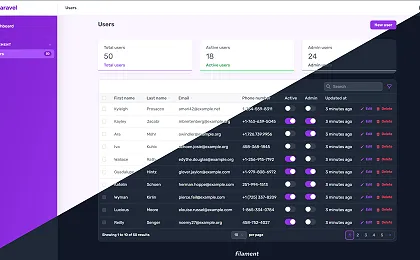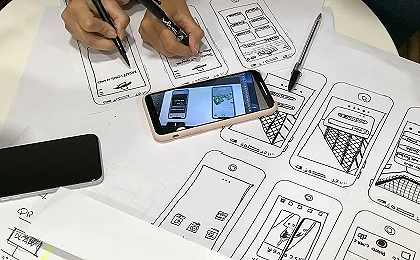If you are a business in the restaurant industry or someone who is passionate about cooking, a cooking blog could be a great way to share your recipes, tricks and tips with a wider audience and monetise your passion. In this article, we will look at the steps needed to create and monetise a cooking blog, and how the help of a freelance web developer can help you achieve your goals.
1. Identify your target audience and market niche
Before creating a cooking blog, you need to understand your target audience and market niche. There are many niche markets in the cooking industry, such as vegan cooking, Italian cooking or gourmet cooking. In addition, you have to decide whether you want to create a general cooking blog or a specialised blog on a particular topic.
Once you have identified your target audience and niche market, you can start creating quality content that meets the needs and questions of your audience.
2. Choose your domain name and blogging platform
Choosing your domain name and blogging platform is an important step in creating your cooking blog. The domain name should reflect who you are and what you offer, be easy to remember and describe your brand or main topic. The blogging platform, on the other hand, must above all be easy to use and customisable.
3. Create quality and original content
Creating quality and original content is one of the most important steps in creating a successful cooking blog. Your content should meet the needs of your target audience and offer unique and original recipes, tricks and tips.
In addition, you should include high-quality images of your dishes and ingredients to make your blog more appealing and professional.
4. Promote your blog on social media and search engines
Promoting your blog on social media and search engines is essential to reach a wider audience. You can use platforms such as Facebook, Instagram and Pinterest to promote your content and reach new readers.
In addition, you should use SEO techniques to optimise your website and increase visibility on search engines such as Google and Bing.
5. Monetise your cooking blog
After creating quality content and promoting your blog on social media and search engines, you can start monetising your cooking blog. Here are some of the most common options for monetising a cooking blog:
- Advertising: you can earn money through advertising on your blog, such as Google AdSense or banner ads. However, keep in mind that too much advertising on your website could be annoying for your readers;
- Affiliate marketing: affiliate marketing consists of promoting other companies' products or services and earning a commission for each sale made through one of your affiliate links. For example, if you have a blog on vegan cooking, you can promote vegan products such as tofu or spices;
- Digital products: you can create and sell digital products such as eBooks, guides or online cooking courses. This is an effective way to monetise your knowledge and skills in cooking;
- Sponsorships: you can partner with brands or companies that are in line with your niche market and pay to be sponsored on your content. For example, if you have a blog on Italian cuisine, you could collaborate with a company that produces Italian pasta and so on.
How a freelance web developer can help you
If you want to create a successful cooking blog, you may need the help of a freelance web developer. A freelance developer can help you to:
- Customise your blogging platform: a freelance web developer can create a blogging platform that fully reflects your needs and goals;
- Improve the speed of your website: a freelance web developer can make your website much faster than other platforms, making it easier to navigate and easier to find: Google in fact rewards the fastest sites by placing them high on search pages;
- Add advanced functionality: A freelance web developer can help you add advanced functionality to your website, such as the ability to make online reservations or purchase digital products;
- Integrate analytics tools: A freelance web developer can help you integrate analytics tools such as Google Analytics to monitor your website traffic and better understand the needs of your audience.
In brief
Creating and monetising a cooking blog can offer great opportunities for those who wish to share their passion for cooking and earn money through their website. However, setting up and running a cooking blog requires a lot of planning and constant commitment. In this respect, working with a freelance web developer can be a great help on all fronts.
An experienced website creation professional can help you customise your cooking blog and add advanced features to meet the needs of your target audience. In addition, he can ensure that your site is fast and efficient to ensure a good user experience.
Remember that to be successful in the culinary blogging world, it is important to create authentic, high-quality content that meets the needs of your audience. A freelance web developer can help you ensure that your site is designed to enhance your content and improve the user experience.
Finally, the support of a freelance web developer can also help you manage monetisation strategies for your blog, as well as provide advice and tips on promoting your site on search engines and social media. With the right planning, in-depth knowledge of your niche market, and the support of an experienced web developer, you can create a successful cooking blog that allows you to earn money through your passion for cooking.
If you want to create your own cooking blog to share your recipes and cooking tips with a wider audience and monetise your passion, contact me to find out how I can help you create your own successful blog!



